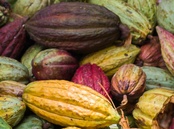 We’ve heard the term “brain food” since we were little, but how much do you really know about them? Our brain affects all aspects of our life, health, happiness, relationships and our ability to function in the universe.
We’ve heard the term “brain food” since we were little, but how much do you really know about them? Our brain affects all aspects of our life, health, happiness, relationships and our ability to function in the universe.
It impacts literally everything we do. Every thought, word, action, behavior and feeling about everything. It would pretty much make sense to start taking care of it. There are numerous guidelines that will help to improve cognition in general. Some of these includes living a healthy lifestyle.
A major component of a healthy lifestyle is supplying our body with the RDA of nutrients, vitamins and minerals. The food we eat has an awful lot to do with how our brain functions. Since the brain is a complicated machine, here’s a great article from Psychology Today for you to read on. It also helps you understand how and why certain chemicals in foods have an effect on our brains.
Here’s the list of the top brain food and the things they can do for the mental well-being.
- Avocado – act as a “nutrient booster” to aid the absorption of fat-soluble vitamins. It is also a rich source of the antioxidant vitamin E. It protects the body and the brain from free radical damage. A source of monounsaturated fats, omega 3, and omega 6 fatty acid. This increases blood flow to the brain, lower cholesterol, and aid in the absorption of antioxidants.
- Broccoli – a good source of Vitamin K, Vitamin E and folate. Vitamin K enhances cognitive function and improve brainpower. Folate helps lowering the levels of an amino acid known as homocysteine in the blood. High levels of homocysteine may trigger the death of nerve cells in the brain, but folic acid helps break down homocysteine levels.
- Coconut Oil – This brain food is loaded with saturated fats that actually raise HDL (good) cholesterol and lower your risk of heart disease. Coconut oil contains an unusual blend of short and MCFAs, specifically lauric, capric, and myristic acids that are linked to special health benefits, such as reducing cholesterol.
- Celery – is a rich source of luteolin, a plant compounds that may calm inflammation in your brain, which is a primary cause of neurodegeneration. It’s a good source of potassium, magnesium, calcium and vitamins A, B, C and K.
- Walnuts – they high in antioxidants and a variety of vitamins and minerals, but the plant-based omega-3 fatty acid found in walnuts — alpha-linolenic acid — is also good for brain health.
- Blueberries – contains antioxidants and other phytochemicals that improves learning, thinking and memory, along with reductions in neurodegenerative oxidative stress. They’re also low in fructose compared to other fruits, making them one of the healthier fruits available.
- Rosemary – carnosic acid is one of the main ingredients in rosemary which helps protect the brain from neurodegeneration. It does this by protecting the brain against chemical free radicals which are linked to neurodegeneration, Alzheimer’s, strokes and normal aging in the brain.
- Banana – contains Vitamin B6, Potassium (good for the heart) and folic acid (essential for our mental and emotional health).
- Dark Chocolates – contains antioxidants and flavonoids. It simulates in increase blood flow to the brain. Improves your memory and concentration.
- Tomatoes – contains a powerful antioxidant, lycopene protects against the kind of free radical damage to cells which occurs in the development of dementia, particularly Alzheimer’s. Favour cooked tomatoes and enjoy with a little olive oil to optimise absorption and efficacy.
Add these brain food to your diet to improve your chances of maintaining a healthy brain.

